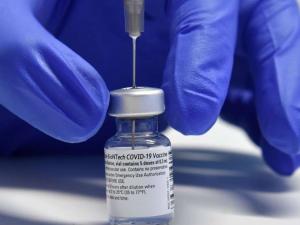
Rwanda prepares to receive a million doses among the first four African countries
As Rwanda prepares to receive a million Covid-19 vaccines later this month, Minster of Health Daniel Ngamije says community engagement and collaboration among countries is crucial for the vaccine to be effective.
Rwanda is among the first four African countries that have attained required criteria to receive Covid-19 vaccines in the next few weeks, along with South Africa, Cape Verde and Tunisia.
Addressing a WHO Africa online press briefing on Covid-19 in Africa on February 4, Dr Ngamije said that Rwanda is counting on the Covax facility, a global initiative set to accelerate equitable access to vaccines, and to provide enough doses to cover 20 per cent of the population. For the rest of the population, Rwanda expects support from the African Union and other partners.
“Our ambition is to vaccinate 60 per cent of the population this year. The first batch will be out in March to be given to mainly frontline workers and elderly people,” the minister said.
Of 150 million doses of the AstraZeneca vaccine that will be released in the first quarter of 2021, Rwanda expects to receive 996,000, and 102,960 doses of the Pfizer vaccine.
Unique vaccine
Rwanda is the only country in the region slated to get the Pfizer/BioNTech’s mRNA vaccine. Because it requires ultra cold storage, several African countries have shied away from purchasing it due to the complexity of transportation, storage and distribution.
According to information from Covax, the published distribution for AstraZeneca vaccines is indicative, based on current communication of estimated availability from manufacturers.
“In this regard, it is likely the distribution may need to be adjusted in light of circumstances that are difficult to anticipate and variables that are constantly evolving,” reads a statement from Covax.
Rwanda is preparing awareness campaigns to engage the public with the help of opinion leaders.
“We have seen groups of people already promoting conspiracy theories against the vaccine, but I believe all we need to do is explain and solve any misunderstanding around the vaccine through campaigns,” Dr Ngamije said.
